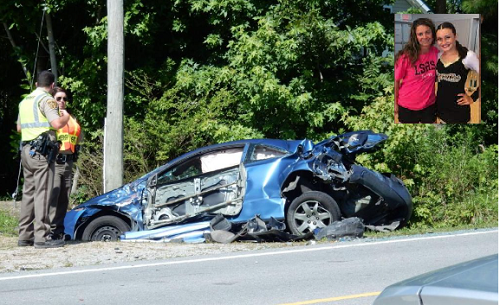Understanding the Rebuilt Title and Its Implications: A Comprehensive Guide

rebuilt title
Buying a car can be both an exciting and confusing process, especially if you come across terms you aren’t familiar with. One term that often raises eyebrows is “rebuilt title.” If you’ve been wondering, “Are rebuilt title cars OK?”, or “What does an Illinois rebuilt title mean?”, then this guide is for you. We’ll dive deep into the pros and cons of owning a vehicle with a rebuilt title and help demystify this commonly misunderstood designation.
Also Read:- Understanding the Volume-Weighted Average Price (VWAP) and Its Role in Trading
1. What Is a Rebuilt Title?
In essence, a rebuilt title is given to cars that were once deemed “totaled” by insurance companies due to extensive damage, but were later repaired and deemed safe for the road. This means that while the vehicle has experienced significant damage in the past, it has undergone restoration to a condition that passes safety and road-worthiness standards.
2. Are Rebuilt Title Cars OK?
Rebuilt title cars, if repaired properly, can be perfectly safe and roadworthy. However, there are a few things to consider:
- Inspection: Before a car can receive a rebuilt title, it typically has to pass a state-mandated inspection. This is to ensure the vehicle meets safety standards.
- Quality of Repairs: The safety and reliability of a rebuilt title car often depend on who repaired it and the quality of the repairs.
- Value: Cars with a rebuilt title tend to have a lower market value than similar vehicles with a clean title.
3. Pros and Cons of a Rebuilt Title
Pros:
- Cost: One of the primary advantages of buying a car with a rebuilt title is the price. They are usually priced significantly lower than cars with clean titles.
- Value for Money: If the repairs have been done correctly, you can get a fully functional car for a fraction of the usual price.
Cons:
- Resale Value: Cars with rebuilt titles typically have a lower resale value. This can be a disadvantage if you plan to sell the vehicle in the future.
- Financing and Insurance: Some banks and insurance companies might be hesitant to finance or insure vehicles with rebuilt titles. This is because of the perceived risk associated with them.
- Uncertain History: It’s not always clear what kind of damage the car sustained. Without a detailed repair history, there may be hidden issues that might come up later.
4. What Does an Illinois Rebuilt Title Mean?
While the general principles of rebuilt titles are the same across states, each state can have its specific nuances. In Illinois, for instance, a rebuilt title is issued when a vehicle was previously titled as salvage but has since undergone necessary repairs to restore it to a roadworthy condition. The vehicle must pass an inspection by the Illinois Secretary of State Police before it can be retitled as “rebuilt.”
5. What Are the Implications for Insurance and Financing?
While it’s possible to insure and finance vehicles with rebuilt titles, it may not be as straightforward as with clean title cars:
- Insurance: Some companies might only offer limited coverage or might charge higher premiums due to the perceived risks associated with rebuilt title cars. It’s advisable to shop around and get multiple quotes.
- Financing: Many banks and lenders are wary of financing rebuilt title cars. However, some lenders specialize in these types of vehicles. It’s crucial to research and find the right lender for your needs.
6. Making an Informed Decision
Before purchasing a car with a rebuilt title, it’s essential to:
- Get a Detailed History: Obtain a comprehensive report detailing the vehicle’s history, the nature of the damage, and the repairs done.
- Seek Expert Opinion: Have the car inspected by a trusted mechanic to ensure it’s in good shape.
- Consider Long-term Implications: Think about how long you plan to own the car and if the benefits outweigh the potential drawbacks.
Conclusion
A rebuilt title car can be a worthwhile investment if you’re looking for value for money and are informed about its history and condition. While there are clear benefits, like cost savings, potential pitfalls like insurance complications and uncertain resale value must also be considered. As with any major purchase, doing your research, understanding what you’re getting into, and consulting with experts can make the difference between a great buy and a costly mistake.
Frequently Asked Questions (FAQs) about Rebuilt Titles
1. What is a rebuilt title?
A rebuilt title is given to cars that were once considered “totaled” due to extensive damage but have since been repaired and passed safety inspections.
2. Are rebuilt title cars safe to drive?
If repaired properly, rebuilt title cars can be safe. However, the quality of repairs is essential. Always have the car inspected by a trusted mechanic before purchase.
3. Why are rebuilt title cars cheaper?
Due to their history of significant damage and the potential uncertainties around the quality of repairs, they often have a lower market value.
4. Can I get insurance for a car with a rebuilt title?
Yes, but some insurance companies might offer limited coverage or charge higher premiums. It’s advisable to get multiple quotes.
5. Can I finance a car with a rebuilt title?
It can be challenging, as many traditional banks and lenders might be hesitant. However, some lenders specialize in financing such vehicles.
6. How does a rebuilt title differ across states?
Each state has specific regulations and processes. For instance, in Illinois, a car with a rebuilt title must pass an inspection by the Secretary of State Police.
7. What should I check before buying a rebuilt title car?
Get a detailed vehicle history report, have the car inspected by a mechanic, and understand its insurance and financing implications.
8. Do rebuilt title cars have a lower resale value?
Yes, they typically have a lower resale value compared to cars with clean titles.








